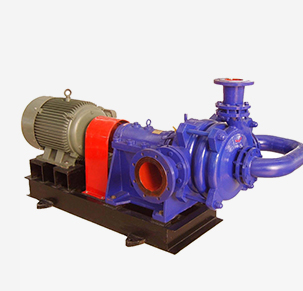Swahili
- Afrikaans
- Albanian
- Amharic
- Arabic
- Armenian
- Azerbaijani
- Basque
- Belarusian
- Bengali
- Bosnian
- Bulgarian
- Catalan
- Cebuano
- Corsican
- Croatian
- Czech
- Danish
- Dutch
- English
- Esperanto
- Estonian
- Finnish
- French
- Frisian
- Galician
- Georgian
- German
- Greek
- Gujarati
- Haitian Creole
- hausa
- hawaiian
- Hebrew
- Hindi
- Miao
- Hungarian
- Icelandic
- igbo
- Indonesian
- irish
- Italian
- Japanese
- Javanese
- Kannada
- kazakh
- Khmer
- Rwandese
- Korean
- Kurdish
- Kyrgyz
- Lao
- Latin
- Latvian
- Lithuanian
- Luxembourgish
- Macedonian
- Malgashi
- Malay
- Malayalam
- Maltese
- Maori
- Marathi
- Mongolian
- Myanmar
- Nepali
- Norwegian
- Norwegian
- Occitan
- Pashto
- Persian
- Polish
- Portuguese
- Punjabi
- Romanian
- Russian
- Samoan
- Scottish Gaelic
- Serbian
- Sesotho
- Shona
- Sindhi
- Sinhala
- Slovak
- Slovenian
- Somali
- Spanish
- Sundanese
- Swahili
- Swedish
- Tagalog
- Tajik
- Tamil
- Tatar
- Telugu
- Thai
- Turkish
- Turkmen
- Ukrainian
- Urdu
- Uighur
- Uzbek
- Vietnamese
- Welsh
- Bantu
- Yiddish
- Yoruba
- Zulu
Telephone: +86 13120555503
Email: frank@cypump.com
Oktoba . 06, 2024 05:25 Back to list
lift pump for septic system efficient solutions for wastewater ...
Efficient Solutions for Wastewater Management Lift Pumps in Septic Systems
In today’s world, effective wastewater management has become a vital concern as communities strive to maintain sanitary conditions while protecting the environment. Among various methods of optimizing wastewater systems, lift pumps play a crucial role, particularly in septic systems. This article explores the importance of lift pumps, their functionalities, and efficient solutions that can enhance the performance of septic systems.
Understanding Lift Pumps
Lift pumps, also known as effluent pumps, are specialized devices designed to move wastewater from lower elevations to higher ones, ensuring that it effectively reaches a treatment facility or drainage area. In septic systems, where gravity alone may not suffice, lift pumps enable the transportation of effluent away from the septic tank for further treatment or dispersion into leach fields. The need for such pumps typically arises in areas with a high water table, sloping terrain, or buildings positioned below the septic tank level.
The Role of Lift Pumps in Septic Systems
In a traditional septic system, wastewater flows from the household into a septic tank, where solids settle at the bottom and liquid effluent is discharged into a drain field for natural absorption. However, if the drain field is located at a higher elevation, a lift pump becomes essential for moving the effluent. The pump activates when the tank reaches a particular level, efficiently transferring the wastewater away from the tank to prevent overflow and maintain system functionality.
The benefits of integrating lift pumps into septic systems are manifold
1. Enhanced Wastewater Management By enabling the transfer of effluent to suitably elevated drain fields, lift pumps minimize the risk of wastewater buildup and associated health hazards.
2. Increased System Lifespan Regular, efficient removal of effluent can prevent strain on septic tanks and drain fields, resulting in longer-lasting systems.
3. Improved Odor Control Minimizing the time effluent remains in the septic tank helps reduce unpleasant odors, contributing to a more pleasant environment.
4. Efficient Land Use Lift pumps allow for greater flexibility in site planning, making it feasible to install septic systems in challenging terrains.
Choosing the Right Lift Pump
Selecting the appropriate lift pump for a septic system involves several considerations to ensure optimal performance and energy efficiency
lift pump for septic system efficient solutions for wastewater ...

- Capacity The pump must be able to handle the expected flow rate from the septic tank or alternative treatment areas. It is crucial to choose a pump with enough horsepower to handle peak usage.
- Durability Wastewater can be corrosive. Pumps constructed from high-quality materials resistant to wear and tear will support long-term operation.
- Energy Efficiency Energy-efficient models can significantly decrease operational costs, providing savings over time devoid of sacrificing performance.
- Easy Maintenance Choose pumps equipped with features that simplify maintenance, such as removable check valves or easy access for repairs.
Maintenance Tips for Lift Pumps
To maximize the life and efficiency of lift pumps, regular maintenance is essential. Here are some tips for effective upkeep
1. Routine Inspection Regular checks can help identify issues before they escalate into costly problems. Look for unusual sounds, leaks, or changes in performance.
2. Check Alarm Systems Most lift pumps include alarms to alert homeowners of malfunctions. Ensure that these systems are functional and tested periodically.
3. Cleanliness Keep the area around the lift pump free of debris and vegetation to prevent clogging and ensure proper airflow.
4. Seek Professional Help Engage a licensed wastewater management professional for comprehensive inspections and maintenance work.
Conclusion
Lift pumps are indispensable for effective wastewater management in septic systems, especially in challenging environments. By selecting the appropriate pump and adhering to a robust maintenance plan, homeowners can ensure their septic systems operate efficiently, contributing to a cleaner, healthier environment. As wastewater management evolves with technology, integrating efficient solutions like lift pumps will continue to play a pivotal role in sustainable sanitation processes.
-
Heavy-Duty Mining Sludge Pumps - Wear-Resistant Slurry Handling
NewsAug.02,2025
-
Horizontal Split Case Pump with GPT-4 Turbo | High Efficiency
NewsAug.01,2025
-
ISG Series Pipeline Pump - Chi Yuan Pumps | High Efficiency, Durable Design
NewsAug.01,2025
-
Advanced Flue Gas Desulfurization Pump with GPT-4 Turbo | Durable & Efficient
NewsJul.31,2025
-
ISG Series Vertical Pipeline Pump - Chi Yuan Pumps | Advanced Hydraulic Design&Durable Construction
NewsJul.31,2025
-
ISG Series Vertical Pipeline Pump - Chi Yuan Pumps | Energy Efficient & Low Noise
NewsJul.31,2025










